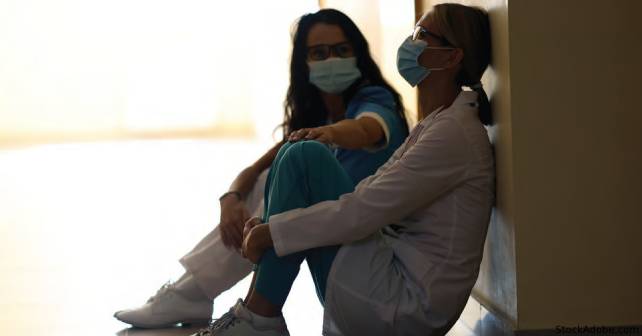
So, that gets to be a dilemma for management to figure out. Work is not just financial reimbursement. There’s psychological reimbursement. And if you’re only thinking about financial materiality … you’re going to miss the psychological materiality.
Explore This Issue
ACEP Now: Vol 43 – No 01 – January 2024AB: The most important thing is that physicians feel that the organization cares for them. In police culture one frequently hears people say, “we’re a family.” What they mean when they say this is, “We care about you.”
If employers make authentic expressions of care and the intention to ensure that the physicians feel appropriately valued, it will show how to induce quality work. And people who come to work with a sense of mission don’t really need to be incentivized. The job isn’t necessarily how to create a set of incentives that will properly motivate the physician. The challenge is how do we subtract the problems that obstruct physicians and induce feelings of demoralization.
MK: Are there things that ER docs can do as individuals (not more pizza or yoga classes) to address burnout for themselves?
GC: There are some burnout models that can be helpful as far as individual solutions, such as the demand-control-support model. What demands do you have? Anything that takes up time is a demand. Is there anything that you could potentially get off your plate, anything that you could control? There’s going to be times that you can’t control things and that’s when spirituality, things like the serenity prayer can be helpful. We’ve got to be connected with people. We must reach out and be intentional about making sure that we have people in our lives. There’s the effort-reward [im]balance model. We expect to get rewarded for our work. And sometimes that means taking a look at our work to find things that maybe we do like to spend a little bit more time on.
There are things that we can pivot or change within our own work.
DM: I think the [social] fabric is important. This is more about just being a worker. One of the things that can happen as a worker is you can let social connections fade away, particularly men. And that shortens the life, it leads to more morbidity. And so, to be specific to people I know, especially men, “I’m not going to show up for the softball league,” or “I’m not going to go to book club.” They will say, “I’m too tired” or “I’m too busy.” And there are times when that’s reasonable, as Greg was saying, you have to be thoughtful about, “Should I be taking things off my plate?” or, “Should I also be making sure that I sustain those friendships and those social fabrics through the years?”
Pages: 1 2 3 4 5 | Single Page




One Response to “Conversations on Burnout, Part Two”
January 7, 2024
Thomas Benzoni, DOSeveral items:
If physicians are paid from accounts receivable, the physicians as a group share the financial cost of attrition, not those causing it. I’m this circumstance, where consequences are divorced from cause, correction/feedback is unlikely.
Next, physician lounges were being closed long before COVID. This is likely a result of short sighted (and likely non-existent) cost savings. (The absolute internally
incremental cost of the lounge is likely less than a rounding error.)
Finally, we have to remember the business we’re in: we’re people taking care of people. We use healthcare to accomplish this goal. When we see leadership neglect to take care of their people, you can bet the farm they have lost their way.